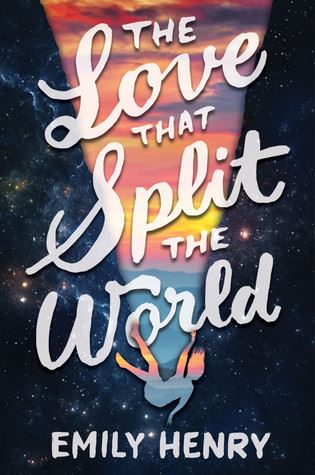Emily Henry’s The Love that Split the World is a lovely story about finding one’s identity and discovering the many forms of love. Even better, there was surprise time travel!
This novel is first and foremost a love story, except there are three kinds of love explored. First is the love between a parent and child. Natalie Cleary was adopted, and both she and her family struggle with this, mostly because of her Native American heritage. What’s made challenging for Natalie is her younger twin brother and sister who are the spitting images of her parents: “I’ve always wondered what that must be like, to look like our parents”. She’s also different from her family in that she sees things. Things that aren’t there. An apparition she calls “Grandmother” visits her in her room and tells her stories, some are creation stories from her heritage while others are clearly European. The world around her shifts, too. Sometimes there are buildings when before there were gardens. Her door changes from green to red. A massive tree is suddenly standing in her school music room. At first she thinks she’s crazy, but then she meets a boy who can see the things she sees.
Nat’s love for the mysterious and beautiful boy named Beau is the second kind of love in this novel. The romance between the two is easy. Besides the complications of the friendships they both share and the alternate worlds that they move through, their love is fairly sure. The only problem is Grandmother’s warning, “You have three months to save him.” Nat’s not sure if Grandmother means Beau, her brother, or her ex-boyfriend, but it’s clear she’s running out of time.
The final love is Nat’s love for herself. Her attempts to find her identity cause her a lot of angst, and she purposefully isolates herself because she feels that she’s too different from everyone else. This results in many of her relationships with others breaking down. The feelings of confusion and uncertainty are familiar for anyone who remembers those anxious teen years, and Nat’s pity party made me want to shake some sense into her! She does grow up though, thinking less about herself and more about the people around her as she accepts that maybe her identity is and will continue to be fluid.

